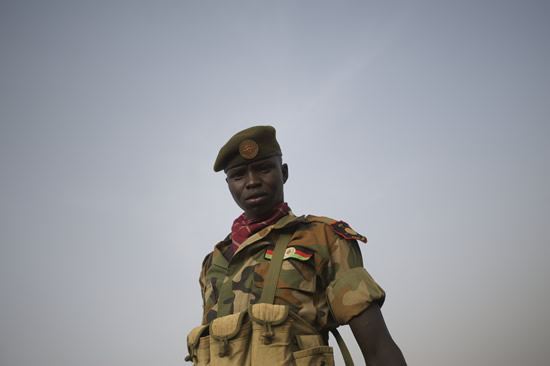Not even a year after South Sudan’s independence from Sudan, the world’s newest country is already on the brink of war with its longtime foe.
Last week, South Sudanese troops (otherwise known as the Sudanese People’s Liberation Army, or SPLA) occupied the oil-rich town of Heglig in Sudan—host to the Greater Nile Oil Pipeline, vital to Sudan’s oil exports. However, South Sudan claims that the land, otherwise known as “Panthou,” is part of its territory.
Following international condemnation, the government of South Sudan withdrew SPLA forces from Heglig on Friday but warned that if bombarded by Sudanese Armed Forces (SAF), South Sudan will “hit back.” Yesterday morning, the SAF carried out reprisal aerial bombings in the oil town of Bentiu, the capital of Unity State.
In a video message last Friday, President Obama addressed the governments in Sudan and South Sudan by appealing to their people, emphasizing the need to resist returning to war. U.N. Secretary-General Ban Ki-moon also condemned the South’s occupation, calling it an “illegal act.”
The United States is heavily invested in maintaining relative peace and stability between Khartoum and Juba. The Bush Administration was an influential partner in brokering the 2005 Comprehensive Peace Agreement (CPA), ending the decades-long civil war and paving the way for South Sudan’s independence. Although it took 10 months for the Obama Administration to announce its policy on Sudan, it is largely a continuation of the Bush Administration’s strategy—overseeing the completion of the CPA and ensuring that peace is maintained.
Unfortunately, a number of issues were not resolved before South Sudan’s independence in July 2011: citizenship, oil management, and most importantly, border demarcation. The disputed Abyei territory remains the underlying reason for the escalation of violence. Following the December 2010 decision to indefinitely postpone the referendum that would have determined the geographic claim on Abyei, hostilities have continued to escalate.
There is still time to prevent the return to war. However, the window of opportunity is quickly closing. There is a lot at stake for both countries, as protracted conflict would result in devastating humanitarian and economic consequences. South Sudan has taken monumental strides in assuming the responsibilities of a sovereign government. Its progress should not be jeopardized.
Prudence Ukwishatse contributed to this blog post.
